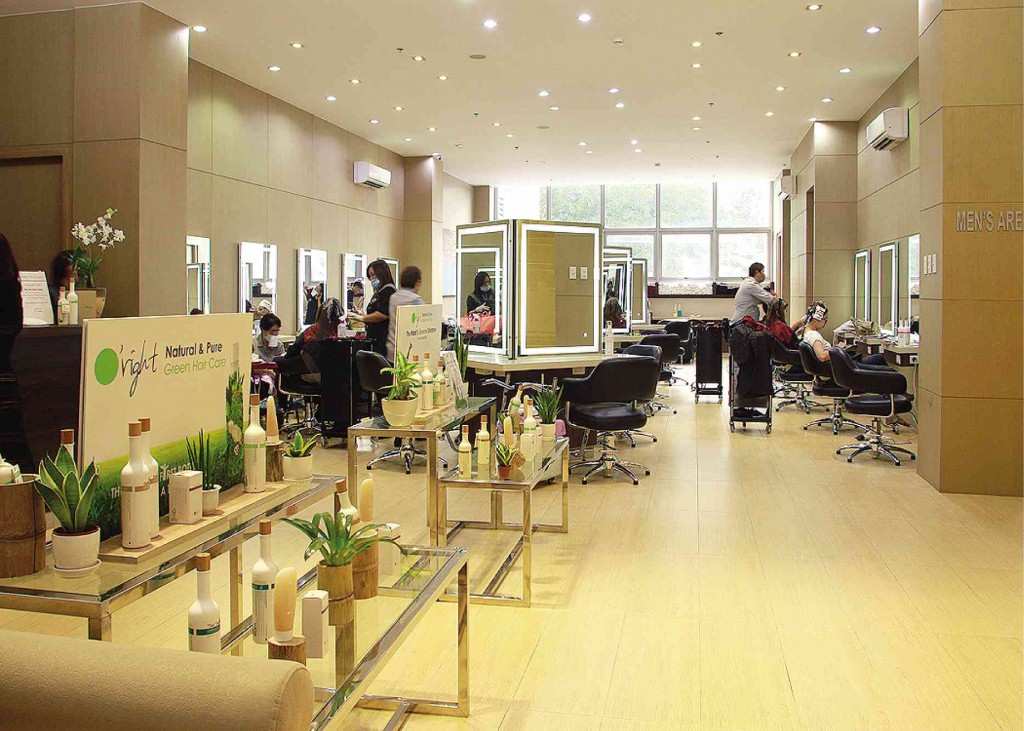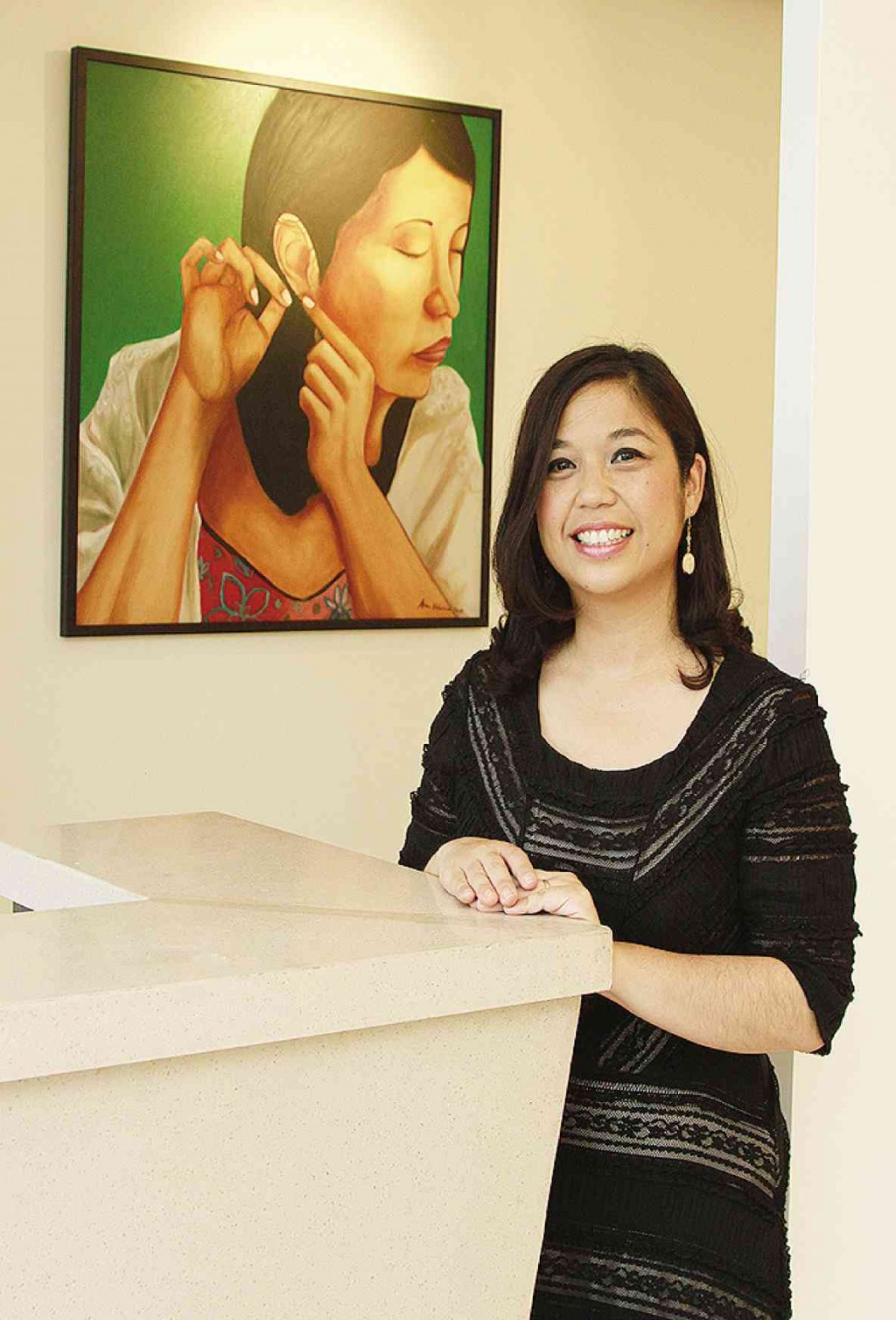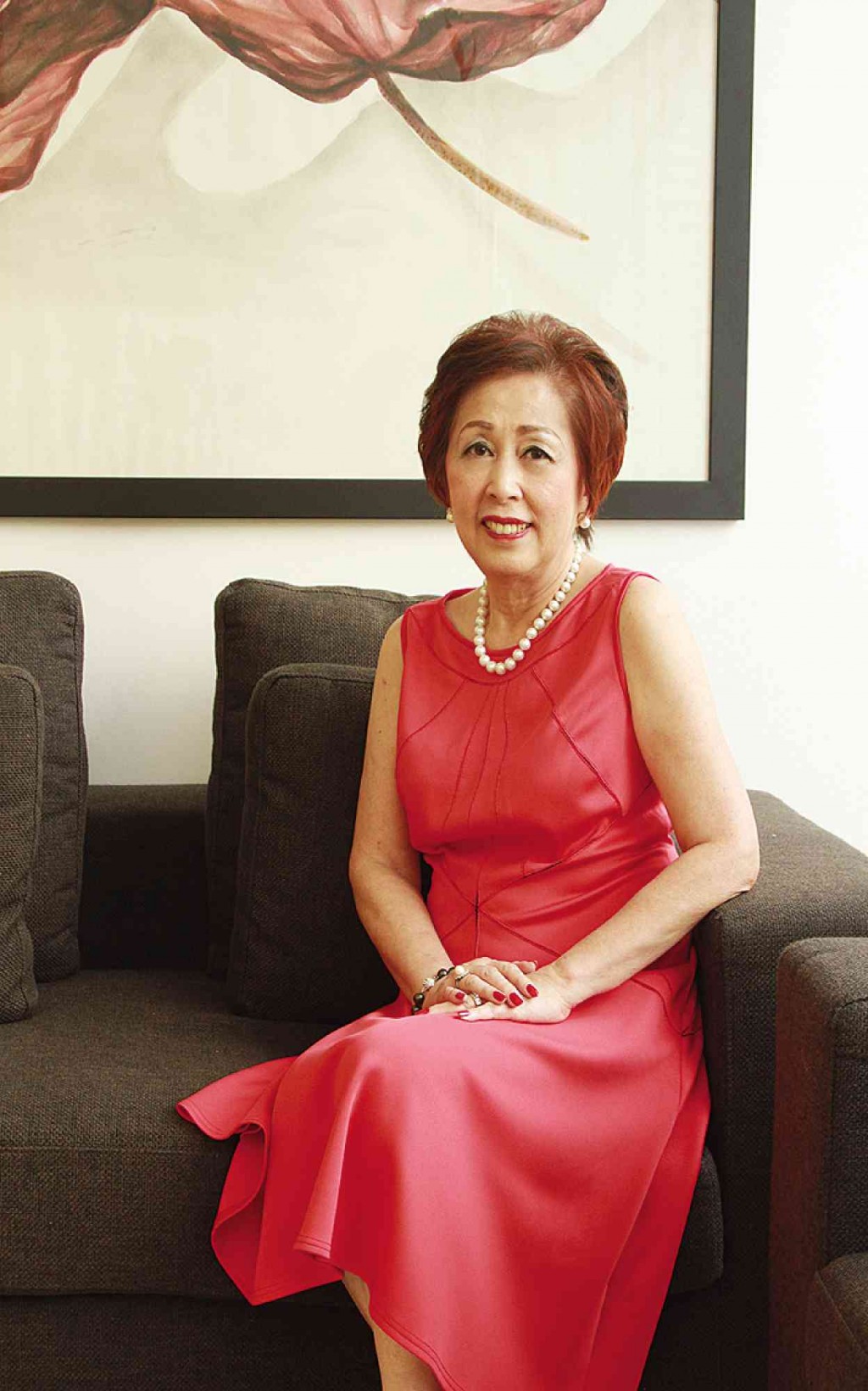Salon opens flagship branch and then some
The newest Piandré salon along Timog Avenue is making a bid to be a hot spot for Quezon City’s affluent market.
The five-level building not only holds the biggest Piandre salon—all of 600 sqm—among the 13 branches but it also includes a ballroom for 280 people; conference facilities for 100, meeting rooms and an art gallery. By yearend, there will be a two-bedroom apartment for brides, who want to get ready for their wedding and a roof deck for special events.
Founder and CEO Rosalinda “Linda” Zamora Francisco purchased the property and put up the edifice as a consolidation of 27 years of Piandré experience. The LZF building, named after the owner’s initials, was built with the star team—architect Carmelo Casas, contractor Pablo Calma and interior designer Sofia Ojeda Llige.
Although it was originally designed as the flagship of the chain, Casas suggested to take advantage of the location by adding more floors to accommodate the new businesses.
The Silver Lotus Ballroom holds sentimental value for Francisco. It was named silver because the groundbreaking was held on Piandré’s silver anniversary last 2012. The lotus, the flower that remains unstained above muddy waters, symbolizes victory over difficult circumstances.
Starting out
Article continues after this advertisementEarly in her entrepreneurial career, Francisco aspired to match the services of hairdresser Richard Warwick and other high-end salons in deluxe hotels.
Article continues after this advertisementIn 1987, she opened Piandré along Amorsolo Street, Makati, hoping to capture the Makati executives. Piandré was coined after the nicknames of her daughters Peachy (Maria Paz Zulueta-Maxwald), Aina (Anna Katrina Zulueta-Valencia) and Andrea Claudia Zulueta.
The reality of a startup business was daunting. Aside from investing money, time and effort, she had to deal with the challenges of creating public awareness of its existence; juggling business and family life and handling the employees. As the business stabilized, some stylists were pirated by a competitor in the same neighborhood.
In 1995, Francisco bravely opened Piandré on 60 Timog Avenue despite cynics who assumed that there was either no market in Quezon City or that it would be eclipsed by the commercial establishments overcrowding the area. On the contrary, the salon thrived until their landlord sold the building where they stayed. When Piandré moved to a location in a quiet neighborhood, sales dipped. To make things worse, the top stylists established their own salon and brought their clients with them.
Francisco tried to lure Piandré’s former clients by sending chocolates to remind them that it was business as usual.
“It has been a long hard climb,” she says.
Running a salon takes vision, organizational talent and discipline to coordinate the operation of a set of mini-ventures in one roof. Through the years, Francisco’s sense of purpose, business discipline and strong ethos spurred the growth of the chain.
Kinship with the client
Francisco and Valencia, the operations manager, cite the main drivers of the business: demographics, quality of the staff, the multiple revenue streams and the employees’ cooperative. Piandré salons are close to well-off residential neighborhoods, offices, commercial centers where they are able to cash in on their cachet. The patrons are successful entrepreneurs, executives, expatriates, professionals and second and third-generation clients.
Piandré has mastered the art of establishing an affinity with the client.
“The customer is king. We give what they want and how they want to be satisfied. Our policy is that if there are complaints, the family handles it—if possible—within an hour,” maintains Francisco.
“The salon is a refuge for the client. They expect attention and to be treated like family,” adds Valencia.
Although their idiosyncracies may seem trivial (like attention or complimentary signature massage), Piandré has built its culture around what its customers value most in order to ensure their kinship and loyalty.
“The clients have their regular schedules with their favorites such as the manicurists and the masseurs. But they are willing to try other stylists within our chain,” says Valencia.
Mini businesses
Piandré differentiates itself from competition for its multiple revenue streams. “We are like a one-stop shop. While some salons have good hairstylists, you can’t be confident of their waxing or nail services,” explains Francisco.
One of its strengths is the haircoloring services. Piandré introduced Lakmé Inspired Haircare, a Spanish hair coloring brand with low ammonia and the perfect color match. When the client chooses the haircolor in the book, it comes out in its intensity.
“You just don’t open the tube and mix. This is a professional product that requires math skills to formulate the exact shade,” says Valencia.
Her sister Andrea Zulueta, the creative director, was taught by the Spanish principals in formulation and application of the color.
“She adapted the training module to the local setting and made it more comprehensible to the stylists,” says Valencia. She adds that the creative director travels frequently to update herself on the latest techniques and trains the staffers. Clients appreciate the continuous learning and look forward to innovations.
Piandré’s business is complemented by the family-owned distribution company, Zulusibs Inc. which sells Lakme, Cover Your Grey (a hair mascara for white roots), Rock Your Hair (products for volume), Keratin Complex Smoothing Therapy, Macadamia Oil.
Piandré carries an exclusive product, Barielle, a nail color which eschews toxic ingredients such as toluene and formaldehyde.
Then there are mini-businesses outside of the salon services. When a customer is served with organic coffee, it comes with free homemade cookies or sandwiches on request.
“We wanted to make the atmosphere more welcoming,” says Valencia. “In the end, the clients buy the cookies or jars of tuna, chicken and cheese pimiento spreads.”
Racks of garments from Bangkok are found in some branches. “Sometimes the client wants a new outfit to go with the new haircut and color. Aside from the shampoos and hair care, they buy dresses and blouses for presents,” says Valencia.
The pricing strategy enables Piandré to tap a wider market. A haircut by a junior stylist costs P380 while a senior stylist costs P900. The most expensive haircut for men is P550, which is based on the stylist’s experience.
Haircolor costs P2,100 for short hair while the longer length fetches P2,700.
Co-ops and green practices
A vital component to Piandré’s success is the employees’ cooperative which was established to create value for the staffers. They collaborate to fulfill the shared needs and objectives of its members, share the rights and make decisions as a group.
“Each one is an owner,” says Francisco. The cooperative owns the Del Monte Avenue branch in Quezon City (although it is managed by Piandré Inc.) and the retails lines of Kerastase Cover Your Grey and Rock Your Hair. The coop receives the net profits and shares the yearly dividends.
The members can also borrow money from the coop during emergency, personal and family needs. They also gain interests from the loans and from the salon that they own.
“They pay interest and get back a portion of the interest. It teaches them to save because a portion of their salary is withheld so that their savings increase,” says Francisco.
The coop’s main concern is to give the best possible services for the members. Francisco cites stories of staffers who came from the province, didn’t graduate from elementary school and spoke broken English. Yet, their talent and people skills won the clients’ hearts. Thanks to the retreats, values-based way of doing business and the coop, the successful stylists are able to send their children to exclusive schools, and buy houses and condominiums.
Still, some long-time stylists or beauticians left to put up their own businesses. Yet despite their artistry and technique, they were not always equipped with the management and business savvy. Some left to join a salon only to return to Piandré.
“Other owners treat the salon as a hobby. We invest heavily in training, educational trips and good products,” says Valencia.
Every year, stylists are sent around Asia for more learning. In a recent trip to Taiwan, Piandré formed a delegation of 23 to visit the Aright Organics factory. This company has won several awards for balancing green business practices with quality hair care products.
Piandré was inspired by the eco-friendly corporate culture that it is also adopting more green practices. “We started with recycling color tubes and nail polish bottles. We are planning to do energy audit in each branch to bring down wastage,” says Valencia.
Ultimately, it is Francisco’s hands-on, firm but gentle motherly style and generosity of spirit that forms the backbone of Piandré’s success. She cites one of Piandré’s top stylists, who was grateful that the matriarch imparted ethos in the culture. She quotes the stylist as saying, “You ingrained in us to do what is right.’”
Francisco adds, “We stay in business so we could contribute to the quality of life of the people.”


